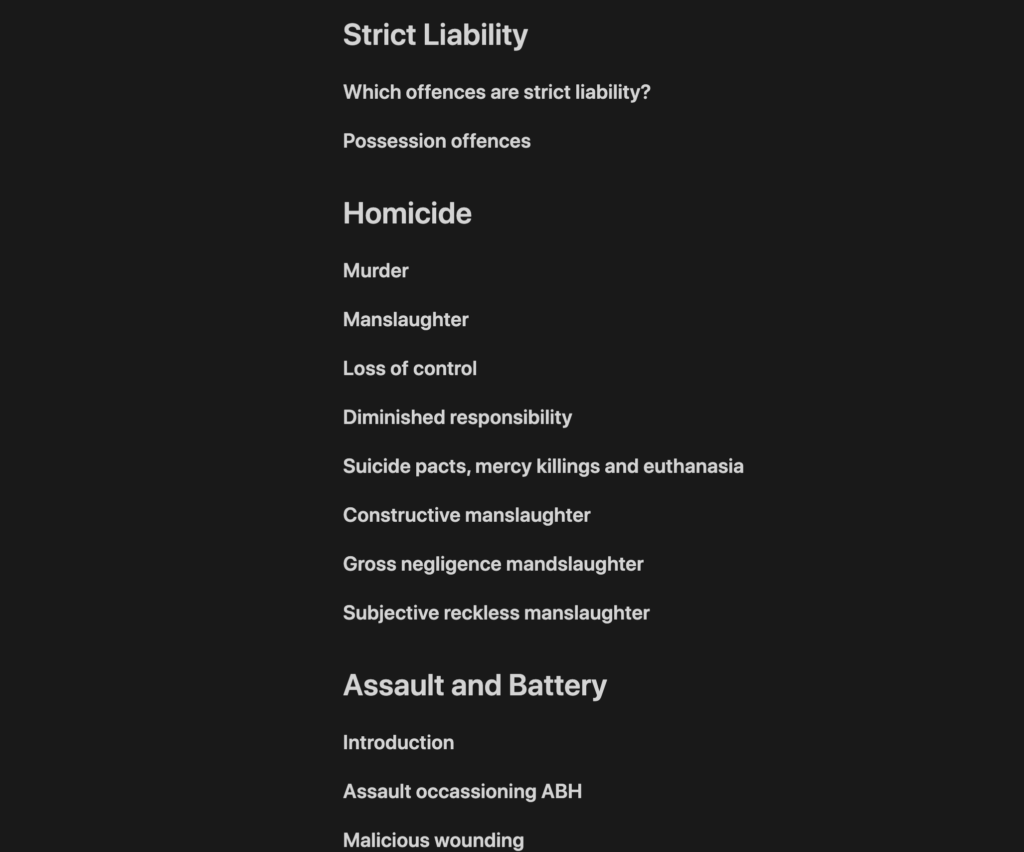Table of Contents
The reason most people don’t get graduate with a first in law is because they work too hard.
I studied just 3 hours a day at uni to rank top of my class. I had no late nights in the library. I had no need to wake up early. And I had plenty of time to pursue my hobbies, socialise, have fun, and pretty much do anything i wanted. It was amazing.
There’s nothing particularly special about me either. The secret is simple: getting a first in law requires LESS work not more.
🚧 Remove Friction
The approach most of us take to our degree is to just dive into work without really thinking about what we’re getting ourselves into. In other words, we take a path that’s got a ridiculous amount of friction, which inevitably makes our study a hell of a lot harder than it needs to be.
Like, if we’re in the process of choosing next year’s modules and getting a first is important to us, sit down and really think about which module is going to help us achieve that goal. Some modules are going to require more time commitment than others, some will be more exam focused or coursework focused, and other modules will be worth different credits.
For example, imagine we’re in the process of choosing between company law or family law, both of which are worth the same amount of credits, have the same number of contact hours, and both have an end of year exam. Which do we choose?

Well, what I’ve found is that most people in this situation choose the module that’s going to look impressive to some random law firm they want to land a training contract at. But, this is a really bad idea if our goal is to get a first. Unless we really love the idea of doing that module, the smart student will actually choose the module that’s easiest, which is probably going to be the family law module. This means we don’t have to put in as much time or effort to receive the same grade and credits compared to doing the company law module
Sure, I can hear some of you say: “But law firms will want to see company law and not family law on my application!”. Well, if I’m totally honest, they really don’t care. If our decision to choose company law leaves us with a second class grade, or worse, then we’re going to find it harder to get into any half-decent law firm anyway.
🔭 Scope the Subject
Now, there’s this quote Abraham Lincoln who apparently said that went something like:
“give me six hours to chop down a tree and I’ll spend the first four sharpening the axe”.
All this really means is that without preparation we’re going to spend a lot longer trying to do something than if we’d just spent a bit of time thinking about the problem in advance.
When it comes to our law degrees, then, the best way I’ve found to “sharpen the axe” is to scope each module. In short, this means that before starting to learn any new topic, we should get out a piece of paper, a word document, or whatever we want, and make a bullet list of all the sub-units and sub-headings for the topic.
It literally takes like 10 or 20 minutes and gives us a really nice overview of the module we’re about to study and let’s us quickly see where new knowledge fits in the bigger picture.
For example, if I were scoping my criminal law degree I should eventually have something that looks a little like this:

Other than giving us a nice overview of the module, I think it also allows us to structure our learning in the right way. For example, if we think of knowledge as this semantic tree, where we need to understand the fundamental principles first (i.e. the trunk and the branches) before we move on to learning all the details (i.e. the leaves), scoping the subject allows us to quickly see what the core concepts are that we need to get right before we start fine-tuning our understanding of the module.

🧠 The Pareto Principle
In our law degree, there’s only one important law that we need to keep in mind every second of every day. That law is Pareto’s Law.
“20 percent of our input (time, resources, effort) accounts for 80% of our output (results, rewards).”
Pareto’s Law
Pareto’s law literally applies to everything in life. For example:
- 80% of crimes are committed by 20% of criminals
- 80% of sales come from 20% of our customers
- 80% of wealth is owned by 20% of people
So, for us, this really means 2 things:
- Firstly, we’ve got time to get a first and get involved with university societies, have relationships, meet up with friends, play sports, and do all the other interesting activities we enjoy doing. So, don’t listen to anyone who says anything like “don’t bother striving for a first, because you’ll have no social life”. It just isn’t true.
- Secondly – and more importantly – we’re likely wasting 80% of our time doing meaningless or unimportant work that’s doing very little to push us towards a first class degree. So, if we’re currently spending 10 hours a day sat behind a desk “studying”, we’ve probably actually only done about 2 hours of genuinely productive work.
Now, I’m not exactly saying that we should only work for 2 hours each day to get a first class degree. But, I am saying that we don’t need to destroy our mental health and general happiness by trying to work every second of the day. It’s not necessary and will, eventually, have a detrimental effect on our wellbeing and grades.
In fact, during my law degree I didn’t really go to my lectures. You see, the point of a lecture isn’t to tell us everything we need to know about a topic – there just isn’t enough time for that. Neither are they there to give us all the answer to questions that may come up in exams. So, if we’re going to lectures because “that’s what first class students do” that isn’t necessarily true.
To be honest, I’d go as far as saying that lectures aren’t that important when it comes to getting a first. At best, they’re there to keep our mind focused on the correct topics and encourage us to think deeply about whatever it is being discussed that week.
The same is true when it comes to reading. Before we start uni law students are always warned that there’s going to be a ton of reading and we’ll be spending all our time in the library. Now, while it’s true that we are given a lot to read lol, we don’t have to read it all to be a first class student e.g. when ‘reading’ a journal article, we can probably get the main point by reading just the introduction and the conclusion.
It’s these little shortcuts to get more done in less time that differentiate the top students from the average students.
💉 Thought Injections
A very important technique to learn more and keep ourselves mentally & physically awake is to add our own thoughts into notes as we create them.
You see, first class students don’t just passively consume information. Instead, they keep a mental dialogue between themselves and the author (if they’re reading a textbook or journal article) or lecturer (if in class). Basically, they actively analyse, examine, and interrogate every new piece of information
This is probably the essence of being the best law student possible. I’d go as far as calling it a mind-enhancing drug, because it will improve your critical analysis beyond belief.
The great thing is, our analysis or interpretation of the law or legal commentary doesn’t even have to be perfect or, for that matter, necessarily correct. The important thing is that we’re able to support our analysis and can back it up with relevant case law and commentary. Our examiners aren’t looking for the next attorney general, they’re looking for independent thought – it’s really that simple.
🎭 Play the Game
Finally, remember that everything in life is a game, including your degree. And you’ve got to learn how to play if you want to succeed.
But, where do you find the rulebook for our law degree?
Well, the rulebook exists in the minds of those who have the power to give us a first class degree i.e. the mind of each and every one of our lecturers. If we know what’s going on inside their head then we’re a step ahead of everyone else.
So, what do we need to know about the mind of the lecturer?
Lecturers, like all humans, base a lot of their decisions on emotion, rather than logic. This isn’t to say we shouldn’t write logical work, because that would be silly. But, if we’re able to get into the mind of our lecturer when we walk into our exam or write our assignments, then we’re going to be creating work that they simply cannot dislike.
And the way we get innto their mind is stupidly easy – spend more time speaking to them.
The great thing is, lecturers love to give students advice and they want you to do well. They want to give you a first-class degree.
I’ve noticed that some lecturers are so keen to give you a first that if you’re just slightly more keen and interested than your peers, they’ll even hint at what the exam may include by saying things like “this is a common topic in exams” and “don’t worry too much about this”.
At the end of the day, your degree is a game, and the better you play the game the greater your chances of success.

